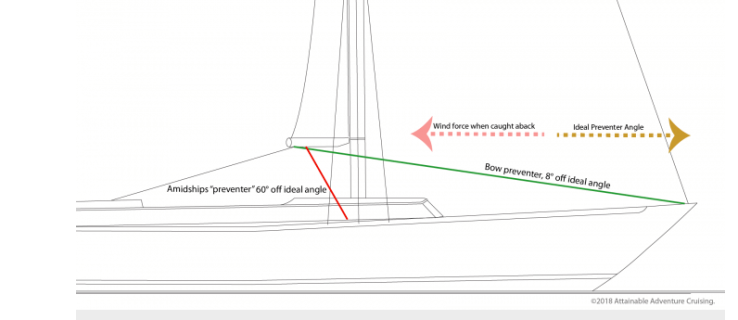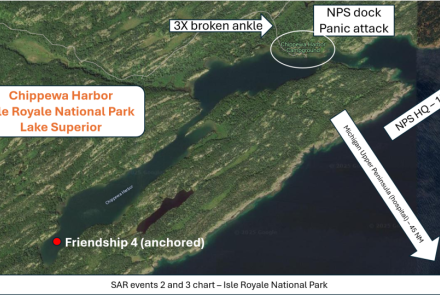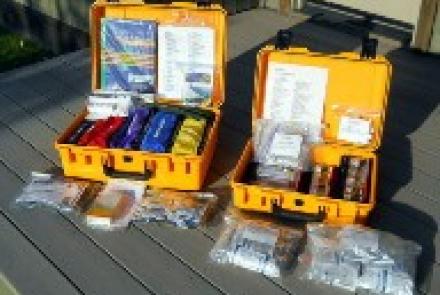Preventers: A Comparison of Approaches
Preventers for off wind sailing has always been a popular discussion topic.
A recent tragic event off the New Zealand coast, has again brought the topic to the forefront. A valuable engineering analysis performed by Maritime New Zealand shed some light on the loads imposed on preventers, booms and the support hardware.
The Gulf of Maine Post recently held a lively discussion lead by Leslie Schneider. Following their lead, the Buzzard's Bay Post held a Safety Moment discussion on use of preventers.
This summarizes the discussion and alternatives.
Preventers are essential gear for off wind sailing but are not a substitute for proper reefing for anticipated conditions and sailing within abilities of crew and boat
The issue is uncontrolled, unplanned gybing
- Injury and death, man o/b
- Gear breaking.
- Rig failure
Ways to avoid:
1. A midships preventer, Dr. Garry Fischer describes a permanently installed midships preventer system that was installed on a Morris 46 on CCA website: https://cruisingclub.org/article/permanently-rigged-preventer-offshore-yachts
Advantages:
- pre rigged, restricts gybing in “moderate” conditions.
- Can be handled entirely from cockpit, including tacking/ gybing
- Nipping the gybe early greatly reduces load buildup
Limitations:
- preventer attachment mid point or forward on boom.
- Smaller load angle, thus greater load on boom and gear.
- Also Vertical load angle increases load on Boom and gear
- Risk of boom breaking, bending, gear failure.
- CCA Member, John Harries writes, “amidships preventers-a-bad-idea-that-can- kill” “Attainable Adventure Crusiing” https://www.morganscloud.com/2018/10/02/amidships-preventers-a-bad-idea-that-can-kill/
- He addresses the loads based on the engineering analysis models of the New Zealand tragedy and estimates the loads on midships preventers are 12-24 times the wind force versus 2 times the wind force for bow preventers the load on a boom end preventer
2. Bow preventer (or End boom preventer), a preventer from bow to end of boom
- Optimum approach for heavy weather sailing
- Greater load angle, thus great gybe resistance for given amount of force.
- Lines along boom can be pre-rigged
- Single or double line from bow block to aft winches
- Does Require going to mast to rig preventer.
See diagrams below for comparison of loads between the two arrangements.
3. Other approaches:
- Vang to toe rail, better than nothing. Poor load angle
- Boom brakes
There is no one best approach one needs to consider boat, crew, weather and available alternatives.
Comparison of loads on a midships versus bow preventer

modification of Gary Fischer's sketch by Paul Bushueff






